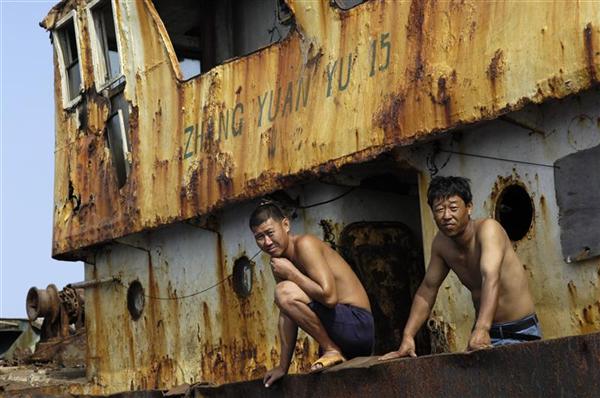The Associated Press recently released results of an investigation into slavery on Southeast Asian fishing trawlers that supply major supermarkets and seafood companies throughout the United States. The enslaved men featured in the AP story, primarily from Myanmar, were brought to Benjina, Indonesia and forced to fish for products that were then shipped to Thailand, where they entered the global seafood market, including American supply chains.
The story detailed accounts of human rights abuses and raised additional questions about where the slave-caught seafood ends up. US Customs records indicated that several of the Thai factories connected to the dirty seafood ship their products to the United States. The investigation uncovered slaves who were regularly kicked, beaten and whipped with stingray tails, and reports of dead bodies being thrown to the sharks or kept in freezers with the fish.
One of the companies connected to the suppliers was Thai Union, owner of Chicken of the Sea, and currently set to purchase Bumble Bee. While the AP did not specifically investigate tuna fisheries, the story reinforces serious concerns over the supply chains for the biggest tuna companies in the US. InGreenpeaces recent canned tuna ranking, the big three tuna companies Chicken of the Sea, Bumble Bee and Starkist, making up 80 percent of the US market – all received failing scores on both sustainability and human rights issues.
There has been increasing pressure on Thailand to clean up tuna industry labor practices. In 2014, aUS report on human trafficking downgraded Thailand to Tier 3, the worst level, for not meeting minimum standards to protect workers. Thai Union was quick to respond to todays AP investigation and drop the supplier in question, but knowing this investigation tracked just one shipment from a single supplier, serious concerns remain about where the companys seafood is coming from.
In response to todays Associated Press findings, Greenpeace US Oceans Campaign Director John Hocevar said:
When it comes to slave labor and human rights abuses in seafood supply chains, the Associated Press findings are the tip of the iceberg. Working conditions aboard fishing vessels are among the worst in the world. While the investigation didnt look at tuna vessels specifically, it connected slavery and major abuses to the largest player in the American tuna market Thai Union. This company is responsible for the majority of destructive tuna found across the country owning Chicken of the Sea and soon Bumble Bee, and supplying Kroger and Walmart. If you eat tuna that is sourced from Thai Union, there is no way to be sure you arent eating fish associated with slave labor or caught under extremely poor conditions.
If Thai Union takes this issue seriously, it will work swiftly and diligently to eliminate slave labor and human rights abuses from its entire supply chain, not just one supplier. Ensuring that its seafood is produced with slightly less slave labor is not an acceptable response for US consumers.
Rather than waiting for someone else to expose where and how its seafood is caught, Thai Union must become a leader in traceability tracking fish from ship to shelf, including regular third party audits and unannounced visits aboard ships. The company should move to ensure it sources from only legal, sustainable and socially responsible fisheries, and any tuna sold by Thai Union must not be sourced from vessels that transfer catches to other ships at sea. Transshipment at sea is a known way to hide illegal catches and prevent the traceability needed to eliminate slavery from seafood supply chains.
Slavery was officially abolished in the US in 1865, but American companies continue to profit from slavery on fishing vessels. Seafood businesses like Thai Union that are associated with slave labor and human rights abuses must either embrace proactive solutions or be shunned by the US market.
For additional information on slavery and labor abuse at sea, as well as guidance for the fishing industry, please visit: http://www.greenpeace.org/international/Global/international/briefings/oceans/2014/Slavery-and-Labour-Abuse-in-the-Fishing-Sector.pdf
To read the entire Associated Press investigative report, please visit:http://bigstory.ap.org/article/b9e0fc7155014ba78e07f1a022d90389/ap-investigation-are-slaves-catching-fish-you-buy
For Greenpeaces canned tuna ranking press release, please visit:https://www.greenpeace.org/usa/en/media-center/news-releases/Greenpeace-Canned-Tuna-Ranking-Finds-Most-Brands-Fail-Consumers-on-Ocean-Safe-Tuna/



